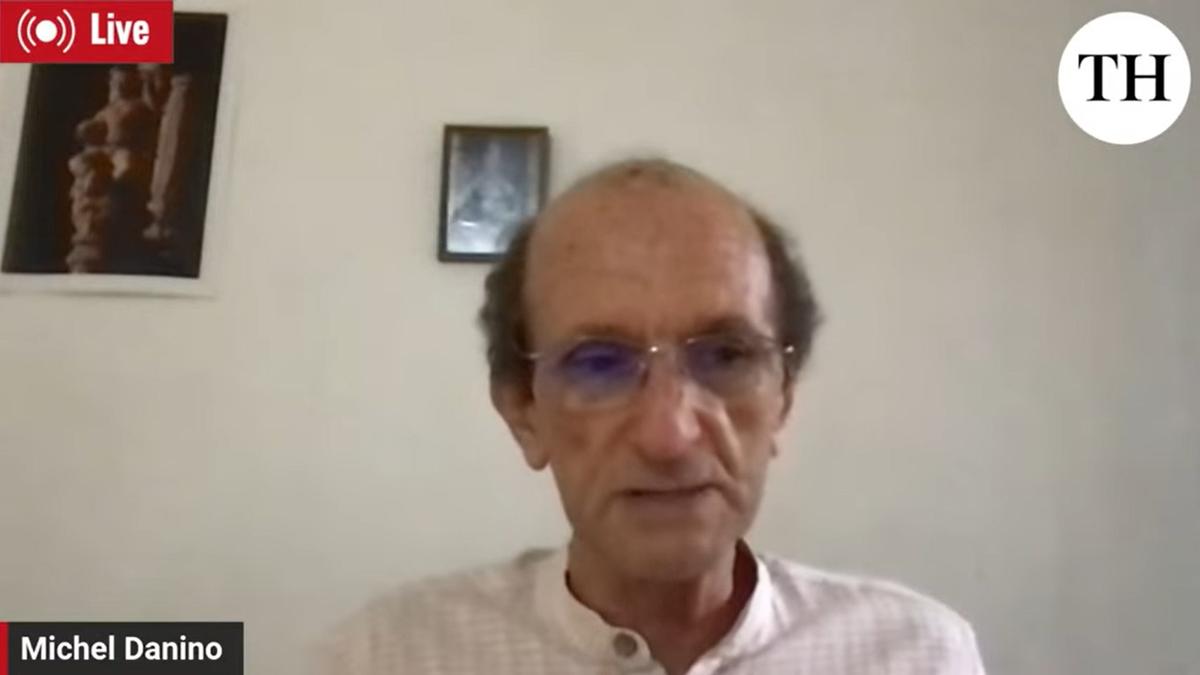
NEP 2020: Michel Danino advocates ‘complete overhaul’ of school education
The Hindu
The Hindu live stream featured prominent educationists Michel Danino, author and visiting professor at IIT Gandhinagar, and G. Balasubramanian, Former Director (Academic) at CBSE who delved into the opportunities and challenges of implementing NEP 2020 in schools.
The Hindu webinar on Learning In Schools: Challenges and Opportunities In The Light Of NEP 2020 held on Nov. 2 fleshed out significant ways in which the NEP departs from previous education policy frameworks. Featuring prominent educationists Michel Danino, author and visiting professor at IIT Gandhinagar, and G. Balasubramanian, former Director (Academic) at CBSE, the session, moderated by Maitri Porecha, touched upon sensitive areas such as naming of the Indus Valley Civilisation that Mr. Danino defended by saying that the Sindhu Saraswati Civilization was one of many names used historically.
Michel Danino, who heads the Curricular Area Group for Social Science in the National Syllabus and Teaching/Learning Material Committee, clarified that the objective of the new NEP is not merely a revision but a complete overhaul of the school education system. Rather than simply revising textbooks, NEP 2020 seeks to fundamentally rethink how knowledge is imparted in schools. The aim is to move away from rote memorisation and towards a more holistic and interactive learning environment that fosters critical thinking.
Danino explained that NEP 2020 aims to reform the very structure of learning, breaking away from India’s traditionally examination-centric education. He emphasised that the goal is to make learning more student-centric by creating content that encourages active participation. “The entire textbook overhaul is meant to reflect NEP’s spirit, focusing on active, engaged learning rather than just delivering information,” he noted.
Danino said that it boils down to what education is all about and while there have been hundreds of textbooks earlier, some of which were good, some may not have been good, but they were all written in a certain spirit and that spirit was no longer adequate.
Danino also shared that the revised social science textbooks are structured to invite students to think and reflect on the material rather than passively memorise it. For example, instead of directly teaching the geography concepts of continents, students are encouraged to explore definitions and classifications to understand that geographical concepts can vary in interpretation. This way, students are involved in a “discovery process,” fostering curiosity and critical thinking skills.
While explaining the intent behind curriculum revisions, he said that diversity must be present in India’s school education much more than it used to be. He said that in both the documents of NEP and National Curriculum Framework, while they do use the term ‘Indian knowledge system’, more often than that they use the term ‘rootedness in India’. It is the fundamental choice decision that these two documents have taken to ensure that every Indian child should be aware of India’s deep cultural roots, which are diverse.
In alignment with that he said that it is not limited to Sanskrit but even Tamil words are used in social science textbooks and in other textbooks there are other languages. He however remarked that while it is not limited to Sanskrit, Sanskrit is very important in India’s cultural life.

The Karnataka government has drafted a comprehensive master plan for the integrated development of Kukke Subrahmanya temple, the State’s highest revenue-generating temple managed by the Hindu Religious Institutions and Charitable Endowments Department. The redevelopment initiative is estimated to cost around ₹254 crore and aims to enhance infrastructure and facilities for devotees.












